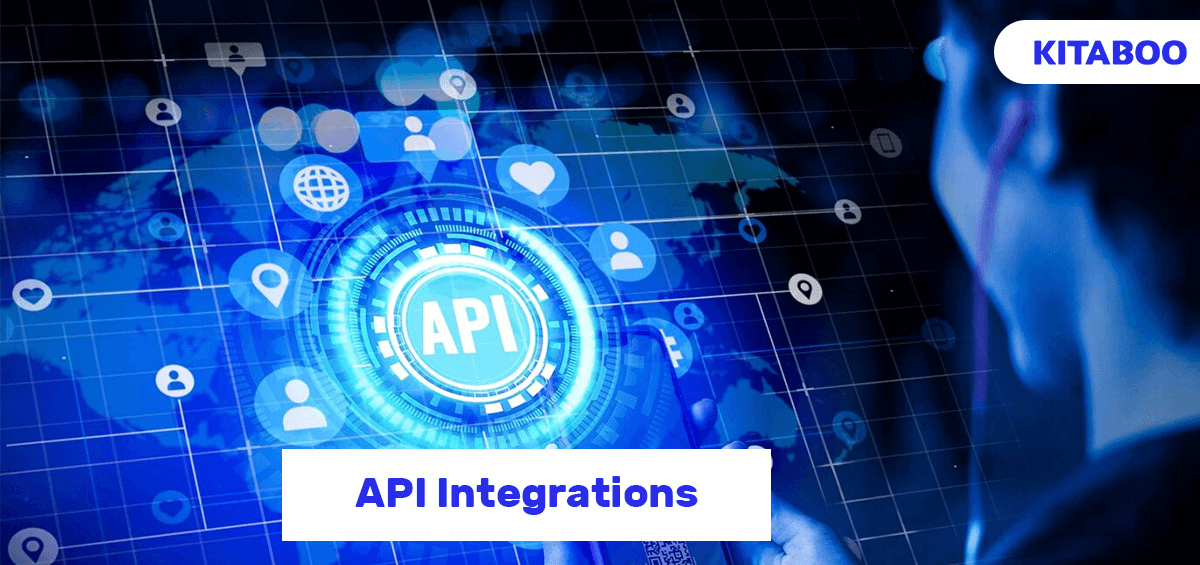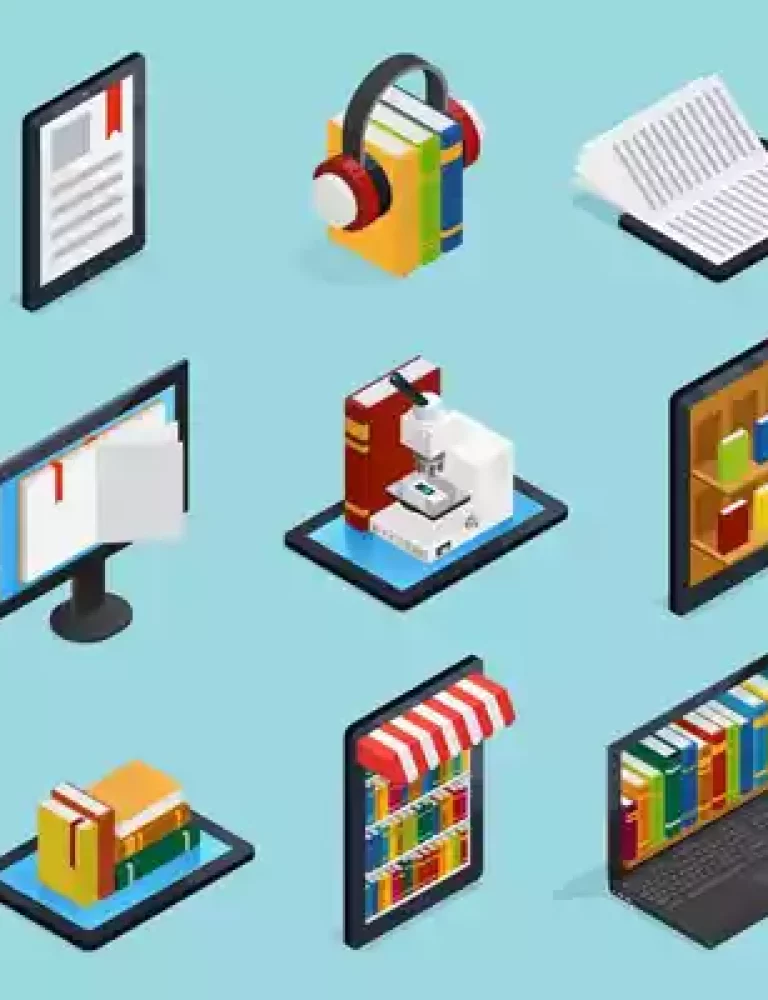Today’s modern world has more SaaS platforms and digital tools than ever before, thanks to the explosion of cloud-based services. Did you know that in 2022, the average organization had around 130 software-as-a-service (SaaS) apps?
If you’re trying to figure out a way to send data from one software to another, this article is for you. A recent survey revealed that 98% of enterprises believe APIs play a pivotal role in their organization’s digital transformation.
This underscores that organizations utilizing multiple apps are increasingly seeking API integrations to seamlessly incorporate these applications.
In this article, we’ll walk you through different aspects of API integration, including its benefits, types, mechanisms, and examples. Let’s get started.
Table of Contents
II. Why are API Integrations Important?
III. What are the Different Types of APIs?
IV. Understanding the Mechanism of API Integrations
V. Enhancing Software Development: The Role of API Integrations and SDKs
VI. Transform Your Organization with Various KITABOO Integrations
VII. Wrapping Up
What are API Integrations?
API integrations refer to the process of connecting two or more applications or services via their application programming interfaces (APIs). This enables them to communicate and work together.
These integrations allow for the exchange of data and functionalities between multiple systems, facilitating streamlined workflows and the sharing of information in real-time.
API integrations enable businesses to derive real value from various software tools or IoT devices. They allow systems to share data without any human intervention, enhancing productivity and creating a more connected and efficient digital ecosystem.
A real-life example in digital publishing would be KITABOO SDK (Software Development Kit). It enables you to embed and customize the KITABOO reader’s features into your eBook or reader app.
Why are API Integrations Important?
1. Enhanced Efficiency
Before API integrations, a paid staff was required to transfer data from one application to another. But today, API integrations streamline data exchange, automating processes and reducing manual efforts.
2. Improved Functionality
By combining the capabilities of multiple applications, API integrations empower businesses to stay ahead of the competition.
They can use APIs to access a broader range of features and deploy new technologies while keeping costs down. This enhances overall operational flexibility and boosts output.
3. Seamless Data Flow
API integrations help break down data silos and facilitate smooth and real-time data transfer between applications.
This ensures that information remains updated and consistent across different systems, leading to more informed decision-making.
4. Enhanced User Experience
Integrating APIs enables the creation of more comprehensive and user-friendly applications.
This ensures a seamless experience for customers and provides them with integrated, all-in-one solutions that meet their needs effectively.
What are the Different Types of APIs?
There are several types of APIs, each with distinct functions that cater to different needs. While web-based APIs facilitate communication between web servers, operating system APIs enable software interactions with hardware components.
Below are some of the most common types of APIs.
- Internal APIs: Also known as private APIs, they facilitate communication and data sharing within the host organization.
- Open APIs: These are publicly available interfaces that allow developers to access specific features or data of a web application.
- Partner APIs: These are shared interfaces that allow companies to collaborate with external partners. They grant other enterprises, controlled access to specific data or services.
- Simple Object Access Protocol (SOAP) APIs: These facilitate the exchange of structured information between web servers and browsers. They ensure robust security measures and support various protocols for standardized communication.
- Representational State Transfer (REST) APIs: These adhere to a set of architectural principles that enable communication between systems via HTTP protocols.
Understanding the Mechanism of API Integrations
APIs help other applications and systems execute a command by furnishing them with the required data. When a user initiates a command on their application, the app relays the data to another system, such as a web server, through the API.
This guides the other system on task completion. The server then retrieves the required data and transmits it back to the device or application through the same API.
For instance, imagine you’re using a weather application that requires real-time updates. The application itself might not store the weather data but could rely on an external service for this information.
When you open the app and request the current weather in your location, the app communicates with the remote weather service through an API. It sends a specific request for the latest weather data.
The API then facilitates the exchange by directing the request to the weather service’s server. It prompts the server to process your request and send back the up-to-date weather information.
The underlying API integration enables this intricate back-and-forth communication. It allows your weather application to provide you with the accurate, real-time data you need.
Enhancing Software Development: The Role of API Integrations and SDKs
In the early days of API integration, businesses relied on developers and manual scripting for integrations. Although this method persists even today, the growing popularity of integrations led to the emergence of a streamlined process.
SDKs are sets of tools, libraries, and documentation that assist developers in creating applications for specific platforms. SDKs provide pre-built functionalities, allowing developers to leverage existing codes for basic aspects of an app. This means they can develop apps without having to build everything from scratch.
SDKs offer an interface for developers to interact with an API and facilitate the integration of the API into their applications. Together, API integrations and SDKs play a crucial role in enabling developers to create robust, feature-rich applications that can interact with various services and platforms.
If you wish to enhance your audience’s content experience, look no further than KITABOO. By collaborating with KITABOO, a prominent digital publishing platform, you gain access to an exceptional eBook SDK that facilitates A/B testing, monetization options, notifications, analytics, and more.
Leveraging KITABOO SDK can significantly boost both internal and external engagement for your business.
Transform Your Organization with Various KITABOO Integrations
1. LMS Integrations
An isolated LMS is incapable of realizing its full potential. KITABOO offers seamless integrations with renowned LMSs like Schoology, Moodle, Sakai, and any LMS supporting LTI 1.1 and LTI 1.3.
When integrated with KITABOO, an LMS can provide secure content delivery with DRM protection and seamless navigation with advanced technological features.
2. Clever Integrations
KITABOO supports clever integrations to break the silos of the standalone systems and improve learning environments.Integrating Clever with KITABOO creates a robust digital ecosystem that reduces manual tasks and saves time. It enables seamless education delivery and ensures an exceptional experience for educators, publishers, and students.
3. Google Classroom Integrations
You can seamlessly integrate Google classroom with KITABOO using the SSO option which makes it all the more easier. Google Classroom significantly enhances the learning and teaching experience.
The powerful KITABOO features and tools complement those of Google Classroom. These include secure and seamless content distribution, a single sign-on facility, automatically syncing data from Google Classroom, and many more.
Wrapping Up
In today’s digital era, API integration isn’t just a perk but a key strategy to thrive and outpace the competition. It can be a complex task, but KITABOO’s expert team makes it a breeze, ensuring your organization benefits from seamless API integrations.
Trusted globally by leading educational institutions, we’re dedicated to empowering stakeholders across industries with the magic of digital integration. Schedule a demo with us today to see how it works!
Suggested Reads:
Discover How An Ebook Conversion, Publishing & Distribution Platform Can Help You
Kitaboo is a cloud-based content platform to create-publish & securely distribute interactive mobile-ready ebooks.
You May Also Like
-
2024’s Best Online Publishing Software Revealed
Blog,Digital Publishing,eBook solution / February 29, 2024
-
A Roadmap To Publishing: Make Your eBook a Success
Blog,Digital Publishing,eBook solution / February 29, 2024








